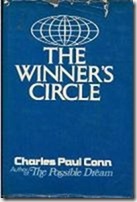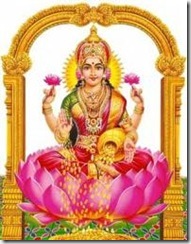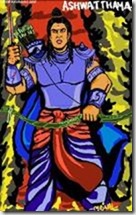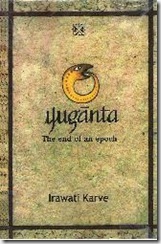Amway is an American multinational company, founded in 1959 by Jay Van Andel and Rich DeVos. It grew to be a multi-billion dollar global corporation with a turnover of more than US$ 11.0 billion and operations in more than 100 countries. It has more than 20000 employees and perhaps lakhs of ‘distributors’ who market and promote the Amway products through a special Amway Marketing System.
The celebrated author, Paul Charles Conn analyses and evaluates in his book “THE WINNER’S CIRCLE” the beliefs and values of the people who made it big in Amway. I shall summarise some of the SUCCESS Notes I made from this book here in this blog post.
Though today, we are in a world of teams, team work, and team spirit; at Amway, individual heroes are identified, held aloft for all to see. There are still winners, still champions, still heroes in the world of Amway. Amway still dares to draw a Winner’s Circle, to draw the line sharply and clearly, and to say to all winners: “Step aside. This place is for you. Not because of your name or title or station in life; not because of your colour of skin or social class. This place is for you because you earned it. You won it. You have made yourself a winner, and the Winner’s Circle is where you deserve to be.” Who are these winners? What do they have in them to become Winners? Read on....
---------------------------------------------------------------------------------------------
1) The WINNERS in Amway
They are relaxed and smiling. They are eager to mix and mingle. The make lots of money. No question about that. But, beyond the money, they genuinely care about the organization Amway they work for and also the other people they work within the Amway. They feel good about what is happening in their lives. And they feel good about themselves. It is a great combination: (1) They make money (2) They care about each other (3) They feel good about themselves.
2) The Amway Founders: Jay and Rich
Jay Van Andel and Rich DeVos were the Chairman and President of Amway, respectively. Great leaders who built the Amway! They not only owned and ran it but also made it. They designed it; put the pieces together, and breathed life into it. They built the company with these 4 ideas: (i) a belief in the supremacy of individual effort, (ii) confidence in free-enterprise, (iii) a high priority on financial independence, and (iv) an emphasis on sharing with other people.
These two men could have walked away from the pressure of leadership as they built the organization along very wealthy and sated, but instead chose to stay, to work, to lead, and to divert to the people the enormous rewards of their system. Each of them was extremely well-disciplined each was strongly committed to the other; each was supremely confident; each was ambitious to the hilt, not personally perhaps, but for the company and the Amway image. While Jay died in 2004 at the age of 80, Rich is now 86 years old. In 2012, Forbes magazine listed him as the 60th wealthiest person in the United States, and the 205th richest in the world, with an estimated net worth of USD$ 5 billion.
3) Amway: The Business Lessons
Amway is a business, like any other business. Amway clearly answers 3 questions that are fundamental to the success of any business: (i) can people make money in Amway? (ii) can people make a lot of money in Amway? (iii) can a lot of people make a lot of money? The answer is a big YES in Amway, and that is what made Amway as big a business as what it is today. The business is successful because it has people who don’t back off even thought they don’t make money initially as fast as they want. They are accustomed to the idea of working now and getting the rewards later. They believe in it. They stick with it. They pour themselves into it. They are willing to pay the price. And that really pays off. They eventually make a lot of money.
4) The rich get richer and the poor get poorer: NOT NECESSARILY!
People may say, “It takes money to make money.” And that may not be true anymore. You can hear a lot of rags-to-riches stories in Amway. People there are more concerned with what people did after joining the company than what they had done before or what they had been before. People are treated and Winners are identified based on their present performance and not on their background. People encourage each other and everyone, “You can do it.”
Work very had now, establish a pipeline of income for you, and keep reaping the profits into the future.
5) Momentum
How do you define momentum? A company has momentum when it keeps things better and better, and people are noticing it more and more. Amway is one company that has momentum. Once a company has momentum, it becomes easier to build the business. The business operates more smoothly with less hassle. Every day, in every way, things get better and better. The following are the two signs of vigorous momentum of an organization:
(i) a growing public visibility
(ii) a reputation for integrity: A company is only as good as its reputation for integrity. It must be built slowly over a period of years. It is the kind of things which comes with time, as a company proves itself to an inherently sceptical public.
---------------------------------------------------------------------------------------------
There is much more to read and learn from this book, “THE WINNER’S CIRCLE” by Paul Charles Conn. You might like to get a copy of it and read it.
I too had an opportunity to meet some of the Amway Winners. I noticed that they are all people with dreams and desires; they have the will to change things in their lives; they want to help others; and more importantly they are not quitters when the going gets tough especially in the initial phase of their endeavour. To be a winner and to earn a place in the winner’s circle, one must believe in what one is doing, love doing it, be willing to pay the price, and work with dedication and determination without giving up after any early setbacks. For that matter, everyone and anyone can be a winner, irrespective of the background or the past.
However, winning is not a sometime thing; you don’t win once in a while; you don’t do things right once in a while; you do the things right all the time; at least strive to do it right every time, and put in excellence in every effort.
To your outstanding SUCCESS,
With love and regards,
Siva
value4value@gmail.com

Image source: http://www.amazon.com/The-Winners-Circle-Hardback-1979/dp/B002BXWFJ8









